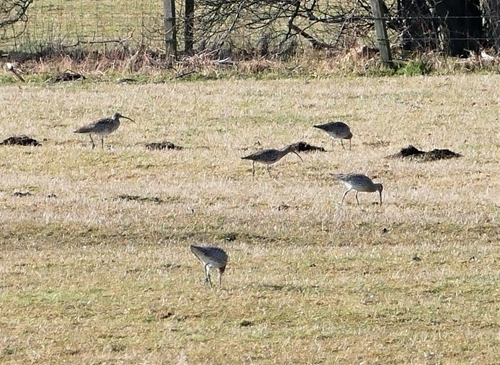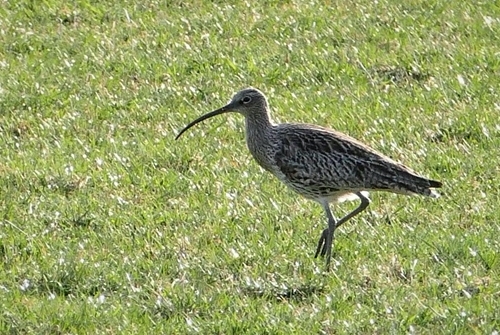We need little reminding about the strictures imposed on all of us by COVID-19. It has affected everyone in different ways, but for a few, lock-down has made little tangible difference to the working day. I was reminded of this when reading the latest blog from our demonstration farm in Aberdeenshire, written by one of our placement students, Max Wright. In his piece, Max comments that he is in the fortunate position of being able to continue with research monitoring as he lives on the farm and no travel is required.
In this respect, he remarks on the rare privilege of seeing the return of wading birds to the fields and being able to finally see curlew about the farm. He adds that whilst many of our wading birds are threatened with extinction, it is an exciting uplift from a dreary Scottish winter.
Staff and visitors now restricted from travelling to Auchnerran will have to rely both on Max for his reporting and on his placement colleague, Elizabeth Ogilvie, for her pictures around the demonstration farm. We treasure this contact because we know how important it is to see continuing evidence that managing a productive sheep enterprise can be achieved whilst looking after a substantial population of wading birds, particularly the curlews.

This doesn’t happen by accident. It is maintained by a combination of features. Firstly, our Farm Manager, Allan Wright, achieves the seemingly impossible by working around the presence of waders in the fields, commencing lambing and afterwards, silage-making, slightly later to accommodate their presence. Alongside this sympathetic management, the legal predator control of foxes and crows carried out by the adjacent moorland keepering team down onto the farm is essential to support nesting, fledging and the overall productivity of our curlews and other wading bird populations. Finally, monitoring the birds through repeat surveys builds the evidence base to establish the different components of success.
We want to do more on the demonstration farm to test out a range of actions that might benefit wading birds, such as different field management practices. For example, we want to further investigate the potential role of added lime in boosting soil invertebrate populations, which may in turn support breeding bird populations, especially waders.
Such habitat management is necessarily long-term. It takes a considerable time for progress to manifest itself in terms of improving wading bird numbers. We are in the fortunate position of being able to consider these longer-lasting initiatives on the demonstration farm because predation control is consistent, and we know from previous work around the UK that this provides immediate assistance to endangered bird species.

We continue to emphasise the need for joined-up thinking in management and agri-environment scheme design where habitat management and predator control are not choices but are fully integrated.
21 April is designated as World Curlew Day. It is a grassroots initiative, supported by major environmental organisations, to raise awareness of the plight of curlews and to encourage activities to help them. We cannot simply preside over extinction. We must take the opportunity to assess all practical options at our disposal to safeguard the future of our curlews.
Photo credit: Elizabeth Ogilvie